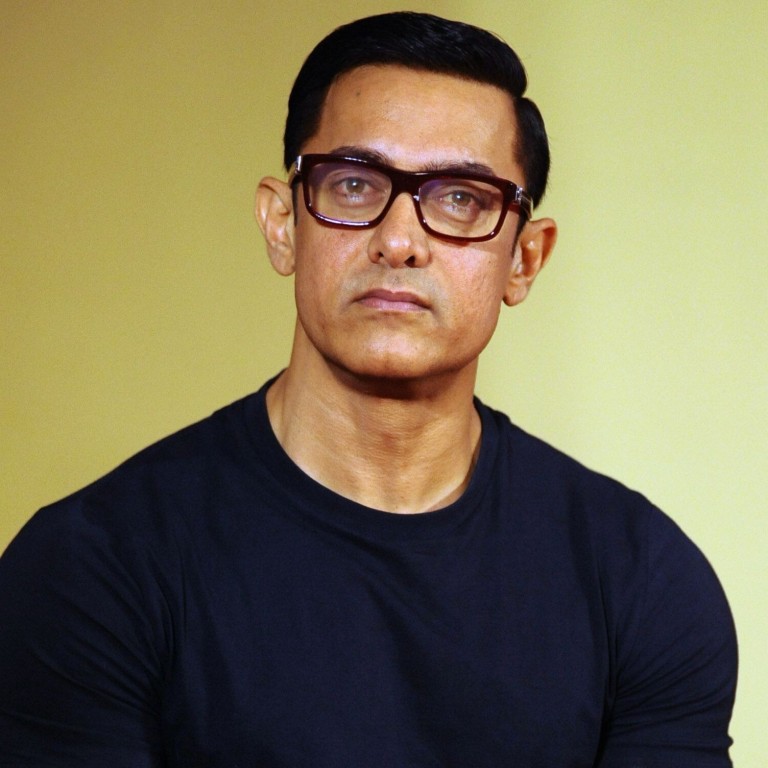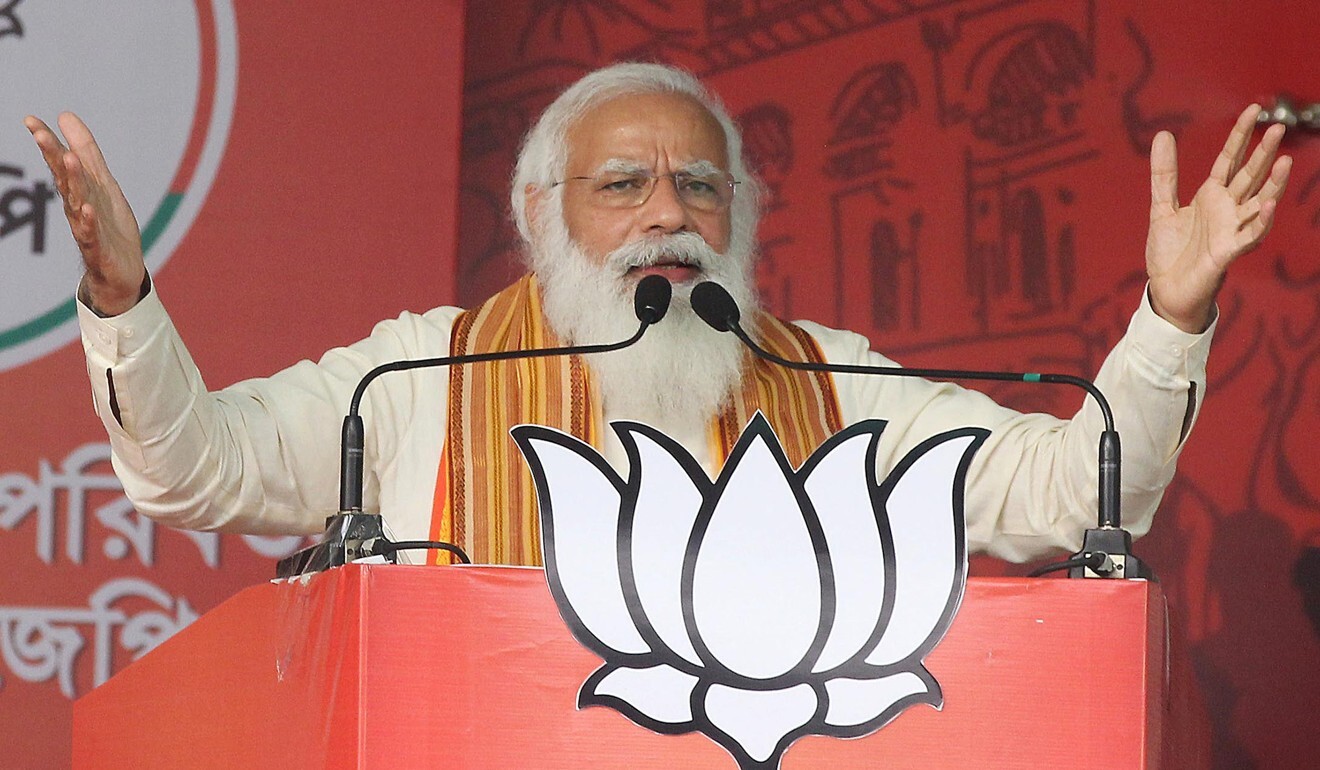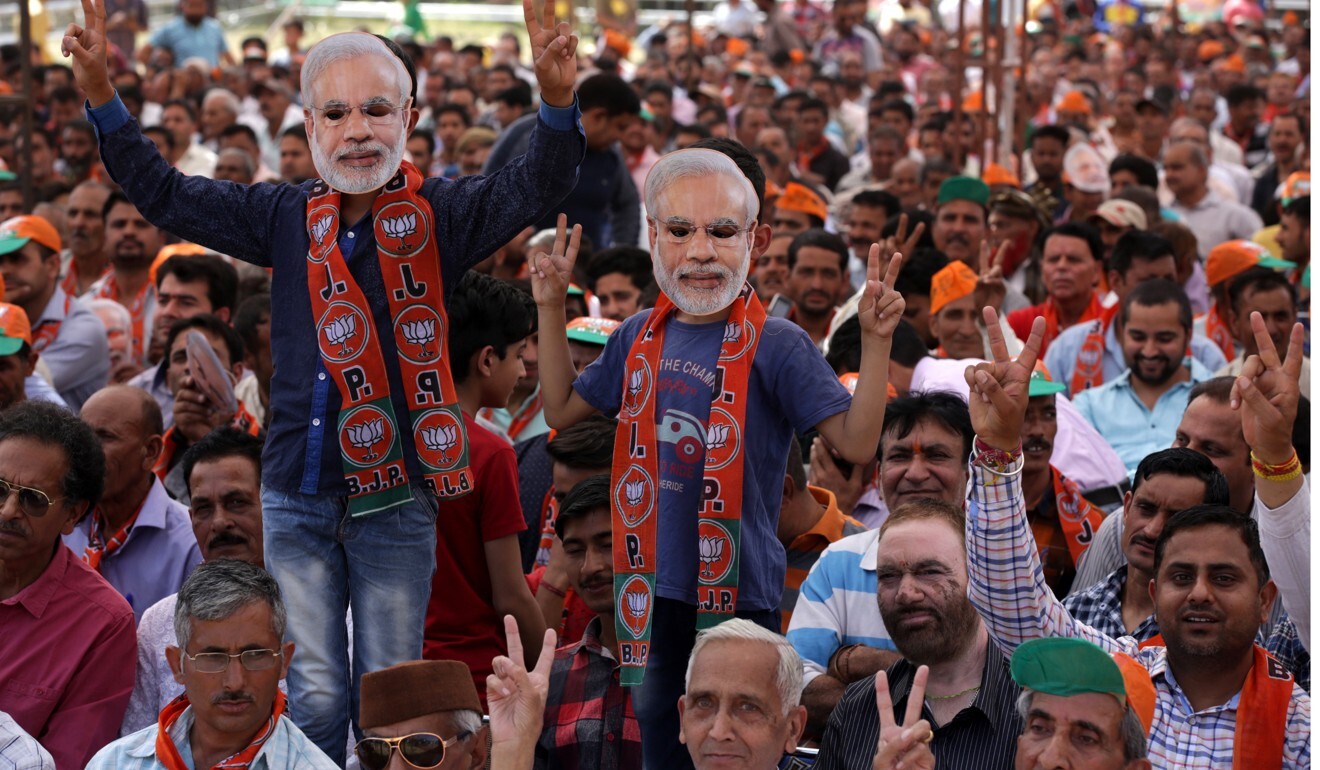
Bollywood star’s Diwali firecrackers comment blows up culture wars against Muslims in India
- Actor Aamir Khan was attacked online for ‘hurting Hindu sentiments’ in a TV ad, as minority Muslims feel increasingly targeted and marginalised in India
- Analysts say these culture wars always increase ahead of an election, as Narendra Modi’s BJP mobilises Hindu voters on religious lines
Khan was hired by tyre company Ceat for a social responsibility campaign ahead of the Hindu festival of Diwali on November 4. In the advertisement, he urges Indians not to light firecrackers on the streets, as is custom. “Roads are for cars, not crackers,” he says.
Hindu extremists immediately took issue with this, excoriating Khan for commenting on Hindu traditions while keeping silent about the ‘regressive’ practices of his own religious community.
Anantkumar Hegde, an MP of the ruling BJP, remarked that Khan should address the issue of Muslims blocking roads in some areas to say their prayers or creating noise from the call to prayer that is broadcast from mosque speakers.
Hegde wrote to the CEO of Ceat to complain. “These days, a group of ‘anti-Hindu actors’ always hurt Hindu sentiments whereas they never try to expose the wrongdoings of their community,” said the MP from Karnataka state.
The backlash against Khan has increased the feeling among India’s 200 million Muslims that they are being targeted by Hindu nationalists, either on social media or through vigilantism.
Religion is keeping Indians apart, especially in the north: Pew survey
In August, Hindu youths vandalised the cart of a Muslim street food vendor in Mathura for having a Hindu name for his stall, telling him to use a Muslim name instead.
Last month, Muslim-owned company iD Fresh Foods faced online claims from Hindu extremists that its ready-made batters contained ground cattle bones (the cow is sacred for Hindus). Consumers stopped buying its products, even though others challenged the false propaganda and made a point of supporting the company.
Butchers – a traditional Muslim occupation – are being marginalised in Uttar Pradesh where the sale of meat is forbidden in several ‘holy’ Hindu towns and pilgrimage centres. Earlier this year, a complete ban on the sale of meat was imposed in Mathura.
Hindu groups in several cities in north India forced Muslim meat shops to close during the Hindu festival of Navratra to ‘protect’ the sentiments of largely vegetarian Hindus.

Cultural wars
As it is, Muslims have very little representation in the country’s political life. Parliament has 27 Muslim MPs out of 543 and the cabinet has just one Muslim minister.
As Hindu groups increasingly scrutinise advertisements, television series and films – anything in popular culture – for anything that smacks of ‘insensitivity’ to Hinduism, analysts say there is a fear among many Muslims that in addition to being rendered invisible in public life, they are also being excluded from earning a living, expressing their views and taking part in the country’s cultural life.
“The cultural wars against Muslims are being waged across a wide spectrum – socially, culturally, and politically too, in the sense of silencing their voices in the public sphere. These attacks are vulgar with no intellectual content at all, just hate,” said author and columnist Parsa Venkateshwar Rao Jnr.
Analysis | Republic of Ram: India’s Modi lays foundation for Hindu state with grand temple
Even the language used in an advertising tagline is not exempt. Fabindia, a well-known clothing and home decor company, released its new women’s collection in the run-up to Diwali with the tagline Jashn-e-Riwaaz, an Urdu phrase meaning ‘celebration of tradition’.
For Hindu hardliners, Urdu is the ‘language of Muslims’ and they criticised Fabindia for using an Urdu phrase in connection with Diwali, saying it was ‘offensive’.
The fact that the female models were not wearing the ‘bindis’ traditionally worn by Hindu women on their foreheads was also deemed to be objectionable. A BJP MP’s call for an economic boycott of Fabindia quickly gained traction.
Son of Bollywood star Shah Rukh Khan in custody after drugs arrest
In one of the most high-profile cases, Aryan Khan, the 23-year-old son of Bollywood superstar Shah Rukh Khan, has been kept in jail since October 3 on drugs charges even though there is no evidence either of drug possession or use.
For many observers, Khan is a victim of the BJP’s three goals. First, to curb Bollywood because it is one of the few institutions with a liberal and secular ethos left in the country. Two, show Muslims that if a superstar like Khan cannot help his son, what chance will they have? And three, paint Muslim celebrities as having gangster connections, as the Narcotics Control Bureau has tried with Aryan Khan by claiming that he has links with ‘international drugs syndicates’.
“The point about taming Bollywood is not to show that stars are equal before the law. It is to demonstrate who has real power and the ability to control the cultural order,” wrote political scientist Pratap Bhanu Mehta in The Indian Express.
On a subliminal level, Mehta highlighted another fear about stars such as Khan. “How dare Indians, especially women, identify with Muslim heroes?”

‘Know your place’
Social commentator Santosh Desai observed that while these protests and attacks are sporadic, taken together, they contain an unambiguous message to Muslims: know your place.
“That’s the message sent out by the Khan case. Of course, he will be released eventually and the incident will be forgotten but his incarceration is a warning to all Muslims that they are helpless if the state chooses to target them,” said Desai.
Moreover, these disparate events allow the BJP to create a sense of fear without having to resort to large-scale violence.
Brand Modi gets a boost as Indian PM turns 71 amid BJP’s mass adulation campaign
This time, the BJP is obsessing about the February legislative assembly election in the vital state of Uttar Pradesh. “Hindutva forces have started mobilising people on religious lines. You will now see one provocative remark after another coming from BJP ministers or BJP trolls and the purpose is to mobilise Hindus against a common ‘enemy’, ie Muslims. That’s the pattern you see before every election,” said Desai.
A largely compliant media helps to amplify the “heightened sensitivity” manufactured and stirred up by Hindu extremist groups. If Hindus become agitated over alleged insults to their religion or culture, their vote for the BJP is assured, Desai added.

